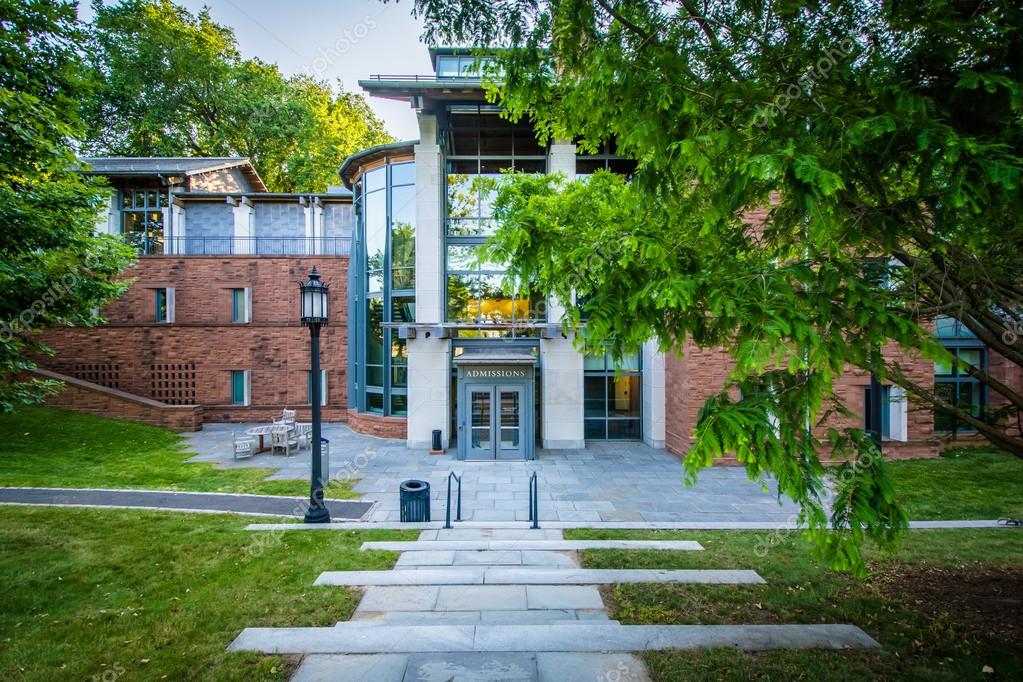Olivia Papp ’22
Features Editor
Adam Minahan ’23 is a sophomore at Trinity who works as a student intern with the admissions team. Looking to further involve himself on campus, Minahan applied to be on the team as a freshman. The role of student interns in the admissions office here at Trinity is multi-faceted.
Minahan described the role of those on the team, stating that “everyone working in admissions doubles as a Student Admissions Associate (SAA), which means I do work like outreach, panels, Q and A’s. I essentially have light interaction with perspective students. These assignments are given to us by admissions counselors who are busy reading applications and such.”
Minahan is also involved with the Multicultural Recruitment team in admissions. There are twelve student interns working on this initiative. The goal of this program is to coordinate trips to campus for prospective students who are underprivileged, international, low-income, or first generation. Any group who has had a historical absence in college admissions are people that they try to help through the Multicultural team. These students fly in from all across the United States and occasionally across the globe. They are just as diverse in their backgrounds as they are in what they do.
“I like working in admissions because I think it is one of the only student jobs at Trinity that has a direct impact on the campus itself. I am responsible for bringing students that Trinity wants to campus. Although I’m not reading applications, I am working on recruiting these students and making their perspective on Trinity awesome and making sure I see them the following year. It is definitely a very important student job,” said Minahan.
The interns get paid for a minimum of five hours each week. There is an hour-long general meeting between all the interns and three admissions counselors on Mondays. The different subcommittees are outreach, programming, and communications, and they each meet occasionally throughout the week.
Minahan expanded further on the communications subcommittee, which consists of “just four of us. We meet for an hour and work on flyers, emails, and any communication that is going to be external to either Trinity students, parents, or perspective students. We don’t get all our work done every meeting, it’s only three hours a week but we get paid for five hours a week. The job only gets time consuming when we have fly-in programs. The fly-in program is called Bantam Bound, which is in the fall.”
In Bantam Bound, students are paired with a host student for two nights and three days usually from Friday to Sunday. These students go to various panels and speak with Trinity’s students, faculty, staff, and other administrators. These students go on tours and do a scavenger hunt to get to know Trinity’s campus. If it is an in-person program, there are about 30 kids flying in, although the number varies from time to time.
“When I first started working in admissions, I became demystified by the whole cut-throat college process. I remember being so stressed about the college process but when I worked with these counselors, I realized it is not do or die. I also realized the admissions counselors in this school want prospective students to interact with them. Every time you interact with them, it shows more demonstrated interest. It is not as stressful of an experience as I once thought. I think it’s stupid we make the process out to be such an awful process filled with judgement,” Minahan remarked.
If any students feel as though they need to change their campus dynamic, Minahan strongly recommends working in admissions. Working in the place where the future of Trinity is decided can be an incredible and rewarding experience.
Minahan offered some concluding thoughts on the student admissions counselors: “The counselors genuinely care about your input on what you want to see at this school and what type of students Trinity should be admitting.”
“It’s nice to be recognized like that,” she added, noting that “it is not for everyone and it is a lot of interacting with people and being eloquent with your words about how you describe your school. They want you to be honest about Trinity during interactions and it’s important to have social energy.”






+ There are no comments
Add yours